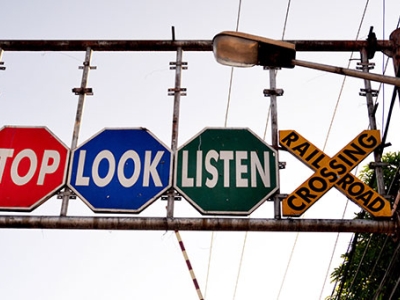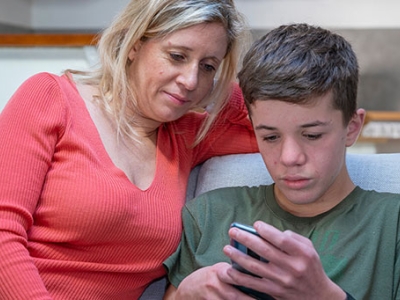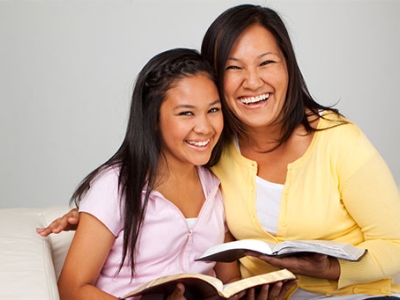
Helping our kids navigate different ideas of ‘truth’
Some tools for your parenting kit-bag.
My kids are just starting youth group and high school. Youth group is amazing and has a wonderful gospel focus. But it’s about 50% non-Christian. My kids go to a Christian school, but the proportion of Christian kids (and parents) is about the same. That’s wonderful from a witness perspective, but it also means that the boys are in the middle of a big melting pot of ideas: agnosticism, spirituality, faith (and faith-ish).
As tweens and young teens, they are being exposed to more adult content on TV, social media and within their peer group. And when I say adult content, I don’t mean sexual content—I mean adult ideas. They are increasingly engaging with and having informal conversations about the question of what is true and what is good. This will direct the way they want to go—not necessarily the way they should go.
What is truth?
A kids who want to be compassionate and respectful towards other people, it’s tempting to imbibe the idea of truth being relative. ‘That’s true for you. That’s your truth.’ This lays the foundation for an approach to life (and faith) that truth is not objective but depends on one’s personal opinion.
As kids in the world, they are also being bombarded by society’s alternate ‘truth’ which includes a general vibe that Christians are wrong, bad and completely out of touch. At the same time, the culture around them is seen as permissive and progressive, and therefore (supposedly) liberated. This is a compelling alternate truth for kids who are working out who they want to be and on what values they are going to build their lives. At the very least, it can shake their faith so that cracks start appearing where they have a sneaking suspicion that Christians might be wrong.
As a parent, it can be hard to re-affirm biblical truth as objective truth without coming across as overbearing or finger-pointy (in that way that makes our kids just roll their eyes). I know that God is sovereign in drawing my boys to himself, but I also know that I am God’s representative in teaching them the way they should go.
Teaching truth
The first thing I am trying to do is be slow, steady and consistent. We read the Bible as many nights as possible during dinner. Some nights, let’s face it, the night is taken up with the mayhem of music lessons and sports. But we are managing this 4–5 times a week at the moment. We’re in the gospel of Mark and I read a little chunk and then explain what some terms mean (like ‘Son of Man’ or ‘Pharisees’) and then ask a question or point out something that is important. It takes about five minutes, and this means they are getting consistent guided time in the Bible that is leading them all the way through a gospel—the story of Jesus and what he came to do. This is the basic truth and foundation of our faith.
Being in the Bible more often means we have a springboard into other conversations when issues come up from TV or from conversations they’ve had with friends. I’ve noticed that it is self-perpetuating too. Because we’re in God’s word more, we are talking about it more, which means they remember to ask questions if they need to work something out, which leads to more conversation and ultimately drives us back to the Bible.
Reading the Bible together at home also lays a foundation for what they are hearing at church, at youth group and at their Christian school. Those things are great, but kids get their major influence from the domestic sphere. If our consistent approach at home becomes the centrepiece of our kids’ spiritual lives, then what they hear at church will play a helpful supporting role.
Beyond Bible time
My boys are not committed readers yet, but I live in hope because there are some great books written for their age group and above. Here are a few good ones:
• How Do We Know That Christianity Is Really True? by Chris Morphew (this is aimed at 9–13 year olds)
• 10 Questions Every Teen Should Ask (and Answer) about Christianity and The Secular Creed by Rebecca McLaughlin
• The Air We Breathe by Glen Scrivener
• A New Freedom by Mike Snowdon.
There’s also Katoomba Christian Convention’s Onward Youth Conference. This annual conference addresses issues that our kids are facing right now. It aims to engage with those topics in an age-appropriate way and equip kids and their youth leaders to navigate these difficult years.
This year the topic is: Can Christianity be both true and good? The world tells our kids that other things are true and good. The world tells them that Christianity is bad. Perhaps they’ve even seen evidence of Christianity being lived out in a not very loving way. Maybe the hardships and frustrations of life in the world convince our kids that God isn’t really present, and we should trust ourselves and the world’s ‘truth’ more.
Onward is on Friday June 23 at the Concourse, Chatswood. It’s $31 per ticket in-person or online (if you live within the Sydney area). It is $20 per online ticket if you are further out of Sydney, regional or interstate (for these tickets you can email info@kcc.org.au for the discount code).
Even though I’m out of area, I’m taking my boys and a couple of their friends because being there in person is such a great experience. The Concourse seats 850 and that really fills the kids with a sense of confidence in being part of a larger group of people their age living and learning for Jesus. Feeling connected to a cohort is so important for them whether it’s in-person, or online with their own friends or youth group.
Onward Youth Conference has become another tool in my kit-bag of parental resources for helping my boys move from an inherited faith to a strong faith of their own with their identity securely grounded in Christ. I pray that the things will help them to trust in the solid foundation of the gospel, taking their authority from God and confident that the Bible’s message is true and good and beautiful.
Register here for the Onward Youth Conference.
---
Ruth Baker is a single mum of two boys. She blogs at ‘Meet me where I am’ and is the author of Are We There Yet? (ArkHouse Press, 2020).

A New Freedom
This book is like a training manual on how to approach life—a beginner’s guide to Christian ethics. It provides a framework for approaching any topic in a comprehensive and biblically faithful way, explaining why Jesus and his word help us live in freedom. It then gives practical examples of how to use this framework to think biblically by going through six key youth topics: study, money, suffering, violence, sex and identity.
For more articles from Growing Faith, subscribe to our monthly e-newsletter.
To hear about the latest books and resources from Youthworks Media, subscribe here.








